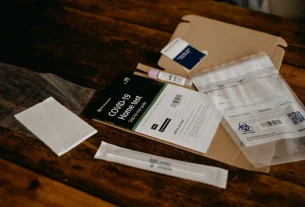Estimated Reading Time: 6 minutes
Estimated Reading Time: 6 minutes
II today’s health-conscious world, the buzz around cannabidiol (CBD) oil is louder than ever.
From managing everyday stress to promoting restful sleep, CBD is touted as a natural wellness solution.
But with a sea of brands vying for your attention, how do you choose the right one?
This guide is dedicated to comparing CBD oils from top brands, helping you navigate the market and find the perfect fit for your needs in 2025.
It’s like picking out the right tea. You have dozens to pick from. Some are good, some are just okay, and a few are pure gold.
The goal here isn’t to declare a winner, but to arm you with the information you need to make informed choices.
Let’s get started on comparing CBD oils from top brands!
Before diving into specific brands, let’s establish a foundation. What criteria should you prioritize when evaluating CBD oils?
Think of it as the ingredients list and nutrition facts label on a food product.
The extraction method determines the purity and potency of the CBD oil. Look for oils extracted using CO2 extraction.
This method ensures the oil is free from harmful solvents, making it safer and more effective.
Solvents like ethanol can leave residue in the final product.
Transparency is key.
Reputable brands provide third-party lab test results, usually called a Certificate of Analysis (COA), confirming the CBD and other cannabinoid content, as well as the absence of pesticides, heavy metals, and other contaminants.
Always check the COA before making a purchase. There are three main types of CBD:
Choose the type that aligns with your preferences and legal restrictions in your location.
Now, let’s move to the heart of the matter: comparing CBD oils from top brands.
This isn’t a definitive ranking, but rather a balanced look at popular options, focusing on the factors above.
Note that this is current as of 2025, as regulations, formulations, and offerings evolve.
Brand A has built a solid reputation for quality. They focus heavily on CO2 extraction and provide comprehensive third-party lab results.
They offer a range of products, from tinctures to capsules and topicals.
Their full-spectrum oil is particularly popular, though they also provide broad-spectrum options.
Their customer service is known to be efficient and accessible.
If budget is a key consideration, Brand B might be a good fit. While they also provide lab results, their pricing is often more competitive.
They typically offer broad-spectrum and isolate products.
Though, the quality may slightly vary, with some users reporting minor inconsistencies across batches.
For those seeking something a little different, Brand C stands out.
They’re known for their unique formulations, which often include complementary ingredients like adaptogens and essential oils.
Their focus tends to be more on specific wellness needs, such as sleep or stress management.
They offer a variety of CBD strengths and flavor profiles, making it easy to customize the dosage.
It’s one thing to read about brands, but what do real people say?
Let’s look at a couple of user stories, adding a layer of practical depth when comparing CBD oils from top brands:
Case Study 1: Sarah’s Sleep Struggles Sarah, a busy working mother, struggled with insomnia. She tried Brand C’s sleep-focused formulation.
She shared, “I was skeptical, but after just a week, I noticed a significant improvement in my sleep quality.
I fall asleep faster and wake up feeling more refreshed.”
Case Study 2: John and Chronic Pain John, a retired veteran with chronic joint pain, has found relief using Brand A’s full-spectrum oil.
He’s shared that “I started with a lower dosage and gradually increased it. It has allowed me to manage my pain and regain some mobility.
I really can’t compare the quality of the pain relief with anything else I have tried previously.”
Beyond choosing a brand, the way you use CBD oil is crucial for maximizing its benefits. Here are a few tips for a better experience:
“The potential therapeutic benefits of CBD are vast, but more rigorous research is needed,” says Dr.
Emily Carter, a leading researcher in the field of cannabinoid science.
She emphasizes the importance of understanding the different types of CBD and choosing products based on individual needs and potential health concerns.
Dr.
Carter also points to the variability of product quality, underscoring the need for third-party testing and a clear understanding of the product’s origins.
Finding the right CBD oil can be a game-changer for your wellness routine.
By focusing on extraction methods, lab testing, and the type of CBD, and comparing CBD oils from top brands, you can make an informed decision.
Remember to listen to your body, start low, and find a product that resonates with your individual needs and preferences.
The market is constantly evolving. So, staying informed through resources like this guide and reputable health websites is crucial.
Enjoy the journey of exploring these natural options and see what works best for you.
Ready to take the next step in your wellness journey? Join our newsletter for weekly health tips!
Frequently Asked Questions
What is the difference between full-spectrum and broad-spectrum CBD oil?
Full-spectrum CBD contains all the cannabinoids found in the cannabis plant, including trace amounts of THC (under 0.3%). This creates the “entourage effect,” enhancing the overall benefits. Broad-spectrum CBD also includes all cannabinoids, but THC is completely removed. Therefore, the core difference is the presence or absence of THC, which might affect your decision based on your personal needs and legal constraints.
How do I determine the correct dosage of CBD oil?
The ideal CBD dosage varies greatly from person to person. The best approach is to start with a low dose, such as 5-10mg, and gradually increase it until you feel the desired effects. Monitor how you feel and track the dosage to pinpoint your optimal intake. It’s always advisable to consult with a healthcare professional to determine the most suitable dosage based on your specific health needs.
Are there any side effects associated with CBD oil?
Generally, CBD is well-tolerated, but some people may experience mild side effects, like drowsiness, dry mouth, changes in appetite, diarrhea, or fatigue. These effects are typically short-lived and tend to lessen with consistent use as your body adjusts. If you experience persistent or severe side effects, you should reduce the dosage or consult a healthcare provider.
How can I ensure the quality of a CBD oil product?
To ensure quality, always look for products that provide a Certificate of Analysis (COA) from an independent third-party lab. These tests confirm the product’s cannabinoid profile and verify the absence of contaminants like pesticides and heavy metals. Review the COA carefully and be wary of brands that don’t provide this information.
How long does it take for CBD oil to take effect?
The time it takes for CBD oil to take effect can vary. When taken sublingually (under the tongue), effects can often be felt within 15-45 minutes. If ingested as capsules or edibles, it may take an hour or more for the effects to appear, as it needs to be digested. Factors such as dosage, individual metabolism, and the specific product formulation can also influence how quickly you experience any benefits.




